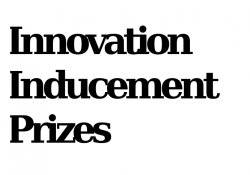1997 James Love, Call for More Reliable Costs Data on Clinical Trials, The Marketletter, January 13, 1997. 2017 James Love, Orphan Drugs Designations and Approvals have Something to Say about Risks, Bill of Health, September 25, 2017. James Love, What… Continue Reading →
The Managers Amendment for the “Tax Cuts and Jobs Act” is available on the Senate Finance web page here: https://www.finance.senate.gov/imo/media/doc/11.20.17%20Tax%20Cuts%20and%20Jobs%20Act.pdf or here: 11.20.17 Tax Cuts and Jobs Act I was looking over the Orphan Drug Tax Credit (ODTC) language. The… Continue Reading →
This was delivered the afternoon on October 3, 2017.
Opening statement of Knowledge Ecology International – WIPO General Assembly 2017
Thank you, Mr. Vice President.
KEI notes the controversies around the world regarding the costs and benefits of intellectual property policies, including in particular extended terms of copyright protection in some countries, access to copyrighted works out of commerce and in teaching and research, and the role of patents in both promoting and discouraging innovation, and creating barriers to access medicine.
Continue Reading →
On 14 March 2014, KEI published “Resurrecting the Ghost of Høsbjør Past: Global Fund seeks to establish global framework on tiered pricing enforced by WTO rules” in which we provided an analysis of the Global Fund’s plans to create a global framework for tiered pricing enforced by the rules of the World Trade Organization (WTO). Continue Reading →
In 2012 the US Patent and Trademark Office (USPTO) published a study titled “Intellectual Property and the U.S. Economy: Industries in Focus” which estimated the number of jobs if various “IP intensive” industries. The study was immediately panned by critics for its broad definitions — grocery stores were the top “ip intensive industry” in the United States, but it became a source of go-to-statistics for every PhRMA and publisher lobby group pushing new privileges and subsidies. (Commentary here: /node/1432)
Continue Reading →
Notes on the Blur Banff proposal* KEI Research Note 2013:1 February 1, 2013 This is a brief note on the Blur/Banff proposal for a system of decentralized decision making and competitive intermediaries to provide money to support recorded music that… Continue Reading →
The World Health Organization (WHO) Executive Board will soon consider the Executive Summary of the Report of the Expert Working Group on Research and Development Financing, a document, formally identified as EB 126/6 Add.1.
In the section of the report on “Funding allocation proposals,” the EWG considers two types of innovation inducement prizes, including
31 (c) milestone prizes; and
31 (d) end-prizes (cash)
Continue Reading →
According to this GQ story, the H-Prize (HR 632, 110th Congress) passed the House today by a vote of 408 to 8.
Every two years, H-Prizes worth $1 million would be given in four categories: production, storage, distribution and utilization. One $4 million prize would be awarded for hydrogen vehicles. At the end of 10 years, a $10 million grand prize would be given for a “transformational advance in hydrogen energy technology.”
Continue Reading →
2000: Paying for health care R&D – Carrots and Sticks James Love* October 19, 2000 *Thirukumaran Balasubramaniam provided research for this paper. Table of Contents Introduction Failures of the Market Investors cannot appropriate all the benefits of research. R&D is… Continue Reading →




